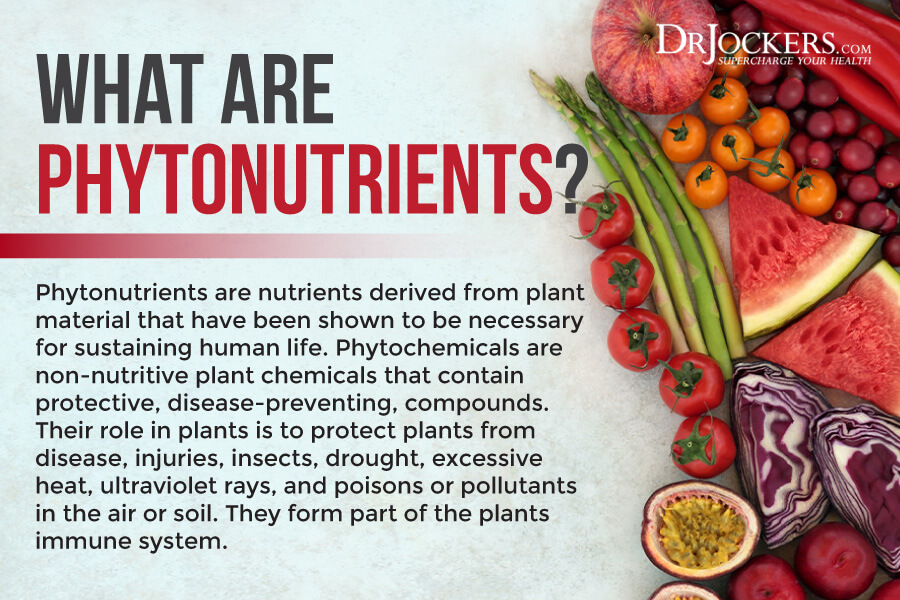Benefits of Phytonutrients
Phytonutrients, also known as phytochemicals, are natural compounds found in plants that have numerous health benefits for humans. These compounds are responsible for the vibrant colors of fruits and vegetables and play a crucial role in protecting plants from various threats such as UV radiation, pests, and diseases. When consumed by humans, phytonutrients exhibit powerful antioxidant and anti-inflammatory properties, promoting overall well-being and reducing the risk of chronic diseases.
The Role of Phytonutrients in Human Health
Phytonutrients offer a wide range of health benefits, including:
Antioxidant Protection
Many phytonutrients act as antioxidants, neutralizing harmful free radicals in the body. Free radicals are unstable molecules that can cause oxidative stress, leading to cellular damage and increasing the risk of chronic diseases such as cancer, heart disease, and neurodegenerative disorders. By consuming phytonutrient-rich foods, you can bolster your body’s natural defense system and reduce the risk of these diseases.
Anti-Inflammatory Effects
Chronic inflammation is a common underlying factor in various health conditions, including arthritis, cardiovascular disease, and certain types of cancer. Phytonutrients possess anti-inflammatory properties that help reduce inflammation and prevent the progression of these diseases. Incorporating phytonutrient-rich foods into your diet can promote a healthy inflammatory response and support overall wellness.
Immune System Support
Phytonutrients play a crucial role in supporting a robust immune system. They enhance the production and activity of immune cells, helping your body fight off infections and diseases. Additionally, some phytonutrients have antimicrobial properties, protecting against harmful bacteria, viruses, and fungi.
Cardiovascular Health
Several phytonutrients have been linked to improved cardiovascular health. They help lower blood pressure, reduce cholesterol levels, and prevent the formation of blood clots. By including phytonutrient-rich foods in your diet, such as berries, leafy greens, and nuts, you can promote heart health and reduce the risk of heart disease.
Cancer Prevention
Phytonutrients have shown promising effects in preventing certain types of cancer. They can inhibit the growth of cancer cells, reduce inflammation, and enhance the body’s natural defense mechanisms against tumor development. While phytonutrients alone cannot guarantee protection against cancer, incorporating them into a balanced diet can significantly reduce the risk.
Phytonutrient-Rich Foods
To reap the benefits of phytonutrients, it’s important to include a variety of colorful fruits, vegetables, herbs, and spices in your diet. Here are some examples of phytonutrient-rich foods:
Dark leafy greens: Spinach, kale, Swiss chard
Berries: Blueberries, strawberries, raspberries
Citrus fruits: Oranges, lemons, grapefruits
Cruciferous vegetables: Broccoli, cauliflower, Brussels sprouts
Tomatoes
Carrots
Garlic
Ginger
Turmeric
Green tea

Incorporating phytonutrient-rich foods into your diet can provide numerous health benefits. From antioxidant protection to immune system support and cancer prevention, these natural compounds play a vital role in promoting overall well-being. By embracing a diet rich in colorful fruits, vegetables, herbs, and spices, you can harness the power of phytonutrients and optimize your health.
Frequently Asked Questions about the Benefits of Phytonutrients
1. What are phytonutrients?
Phytonutrients are natural compounds found in plants that have various health benefits for humans.
2. What are the main sources of phytonutrients?
Phytonutrients are abundant in fruits, vegetables, whole grains, legumes, nuts, and seeds.
3. What are the potential benefits of consuming phytonutrients?
Consuming phytonutrients may help reduce the risk of chronic diseases, such as heart disease, cancer, and diabetes. They also support overall health and immune function.
4. How do phytonutrients contribute to heart health?
Phytonutrients can help lower blood pressure, reduce inflammation, improve blood circulation, and support healthy cholesterol levels, all of which are crucial for maintaining heart health.
5. Can phytonutrients help prevent cancer?
Some phytonutrients possess antioxidant and anti-inflammatory properties that may help protect against certain types of cancer by neutralizing harmful free radicals and inhibiting the growth of cancer cells.
6. Do phytonutrients have any anti-aging effects?
Yes, certain phytonutrients have been found to have anti-aging effects by protecting cells from oxidative damage, promoting collagen production, and enhancing skin health.
7. Are there specific phytonutrients that support brain health?
Yes, some phytonutrients, such as flavonoids and omega-3 fatty acids, have been linked to improved cognitive function, and memory, and reduced risk of neurodegenerative diseases like Alzheimer’s.
8. Can phytonutrients help with weight management?
Phytonutrients can aid in weight management by promoting satiety, boosting metabolism, reducing inflammation, and supporting a healthy gut microbiome.
9. Are there any side effects of consuming phytonutrients?
Phytonutrients are generally safe when consumed through whole foods. However, excessive supplementation may have adverse effects or interact with certain medications, so it’s best to consult a healthcare professional.
10. How can I incorporate more phytonutrients into my diet?
You can increase your phytonutrient intake by consuming a diverse range of colorful fruits, vegetables, whole grains, and legumes. It’s also recommended to eat them raw or lightly cooked to maximize their nutritional benefits.




